INTERNATIONAL RELATIONS
INTERNATIONAL RELATIONS
Florence Parly to “K” | Joint production of French frigates in Greece, joint exercises and vigilance about Turkey
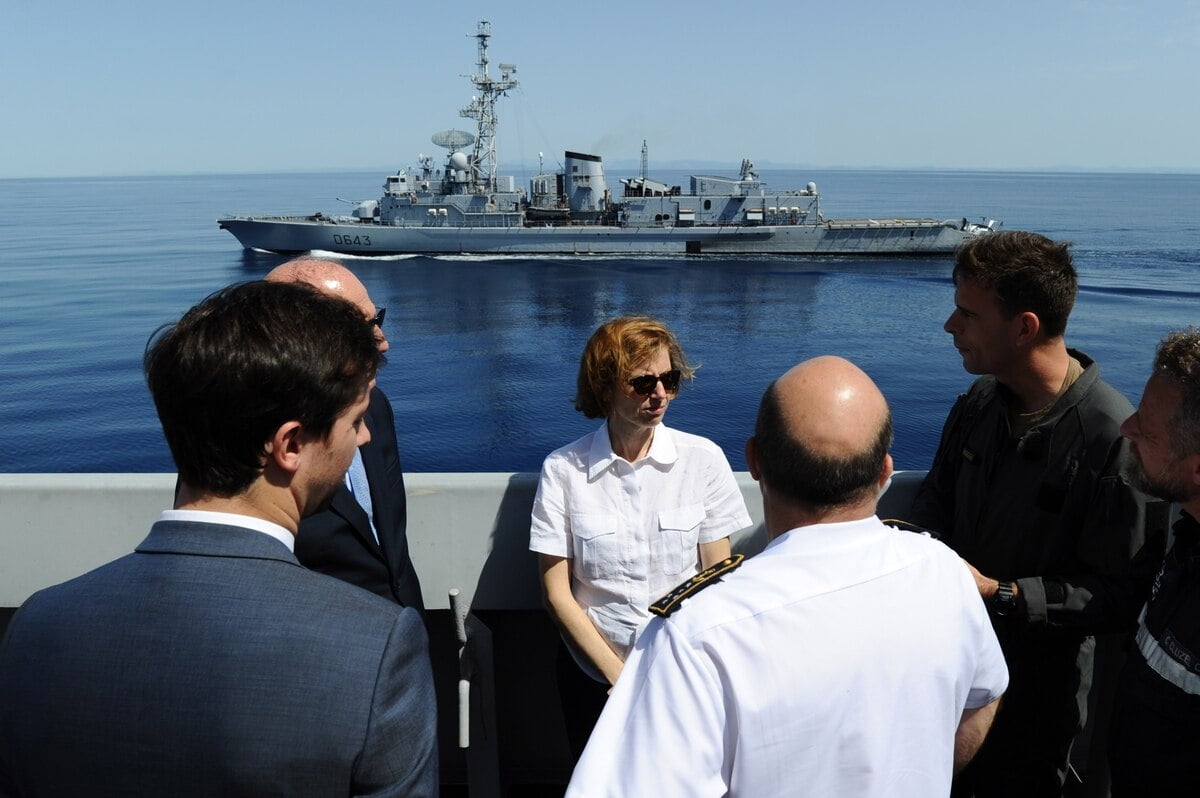
An interview with “Kathimerini” newspaper was given by the Minister of Defence of France, Florence Parly, shortly after the signing of the agreement for Greece’s purchase of 18 Rafale fighter jets.
During the interview, Ms. Parly stressed that France looks forward to further strengthening its already close relations with Greece and that it is ready to sell a new generation of FDI frigates to Athens, while she also discussed the possibility of arranging their production partly in Greece.
Also read: Florence Parly in Athens today to sign Rafale agreement
Ms. Parly also noted that soon the Hellenic Air Force is going to participate in the multinational exercise “Skyros” which will range from Greece to the United Arab Emirates and India, while in February, a Greek frigate will join the “Charles de Gaulle” aircraft carrier.
Furthermore, the French Minister also referred to the participation of special forces from Greece in the operations in Mali, while she pointed out that the discussions on a bilateral security agreement continue. Regarding Turkey’s stance, Ms. Parly emphasized that the rhetoric of reassurance is positive, but it must also be confirmed by deeds. In this regard, Ms. Parly emphasized that France will be adamant on the issue of respect for international law.
In detail, the interview Florence Parly gave to “Kathimerini”, Athanasios Ellis and Vassilis Nedos:
Question: What are the next steps in the defence cooperation between Greece and France after the signing of the Rafale agreement?
Answer: We are building a solid defence relationship with Greece. The supply of Rafale fighter jets to Athens is only one aspect of this relationship. We regularly exchange views on strategic affairs in the Mediterranean and elsewhere, while our armed forces are conducting joint exercises. I also hope that our defence industries will work more closely together. That is why we have new instruments within the EU, such as the Permanent Structured Cooperation and the European Defence Fund. I would also like to emphasize that we share similar views on what is at stake and the challenges of European defence.
Question: Will there be a new proposal for the supply of French Navy vessels? Is it possible for some of them to be constructed here in Greece?
Answer: As you know, France has a world-class shipping industry. Today, Naval Group is producing a new generation of frigates (FDI) for the French Navy. I can tell you that these frigates are top of their class and that they will be the spearhead of our Navy. I believe that the acquisition of these frigates from Greece would be very good news for our countries. For this, of course, France and its shipbuilding industry will respond to every request of the Hellenic Navy. In addition, I am sure we will need to consider how we could plan a part of the production in Greece. This would help to strengthen the industrial and technological base of European defence, which I firmly support.
Question: Do you envisage more joint exercises with the Hellenic Air and Naval Forces in the Aegean and the Eastern Mediterranean?
Answer: Yes, and very soon in fact! In a few days we will deploy important aircraft in Greece as part of “Skyros” exercise. This long-range deployment will include up to 170 pilots, four Rafales, two A400M Atlas and one A330 Phenix. The French Air Force is already on a tour that started on January 20 and will end on February 5, 2021. It took off from Djibouti and will travel successively to India, the United Arab Emirates, Egypt and Greece. The exercise aims to demonstrate the deployment of the French Air Force thousands of kilometers away from its borders in a limited time and in a zone of strategic interest, where France wishes to reaffirm its commitment to the concept of freedom of supply and aviation. It will be the first joint exercise of these three “jewels” by the French Air Force. It will of course be an opportunity for exchanges and joint training with the Hellenic Air Force. After all, following the participation of the Hellenic Air Force in the last “Volfa” exercise in France last autumn, we are looking forward to the aircraft deployment (8 Rafales and 4 Mirage 2000) next spring, on the occasion of the international exercise “Driver” (to be held from April 12-24 in Greece).
As for the Navy, our “Charles de Gaulle” aircraft carrier will be on a mission in the Eastern Mediterranean and the Indian Ocean during the first half of 2021. An invitation has been sent to Greece for the participation of a frigate in this mission between the end of February and the beginning of March. The exercise includes contancts between the French Air Force strike team (i.e. Carrier Group of “Charles de Gaulle”) and the Hellenic Air Force. This will allow our Forces to continue training on cooperation and enhance their interoperability. These contacts are also taking place in a multilateral context, in particular in the context of the quadripartite initiative between Greece, France, Cyprus and Italy or the “Medusa” initiative, as happened in early December. However, our operational cooperation could soon develop with a Greek commitment in the Sahel where more and more Europeans are collaborating with us, either in MINUSMA or in the EUTM, or in the framework of Takuba, a group of European special forces accompanying the Mali armed forces.
Question: Is there room for a mutual security agreement between Greece and France?
Also read: French Rafale fighters | The agreement, their equipment and the time frame for their arrival
Answer: In terms of defence, the Greek-French relations have peaked in a decade, as evidenced by the approximately twelve ministerial meetings and the visit of the French Chief of the General Staff in Greece in 2019. Important aspects of this strategic partnership, as mentioned last January at a meeting between the French President and the Greek Prime Minister, have already been implemented, especially between our armed forces. Of course, we continue to work on this issue so that we are ready to formalize it as soon as possible.
Question: What steps should Europe particularly take to reach a level of strategic autonomy?
Answer: As you already know, France believes in a stronger Europe, more resilient to crises. I believe that the crisis we have been experiencing for about a year now has shown the extent to which it is necessary to strengthen Europe’s sovereignty. The concept of “strategic autonomy” refers to an ability that will give Europeans freedom of assessment, decision and autonomy. At stake is the protection of European citizens, but above all the establishment of our sovereignty and our collective credibility, as partners, especially within NATO. This strategic autonomy covers a wide range from protecting our democratic institutions against the threat of foreign intervention to freedom of assessment and action in the operational sector, through the security of the economy and technology, which in turn strengthens the European defence industry. In this area, we have made great progress in recent years. But we have to go further.
Question: Do you think that Turkey has a sincere interest in cooperating with the EU and in adapting its behavior to international rules?
Answer: I hope so! It is in everyone’s interest to maintain close and trusting relations, especially between neighboring and allied countries. We must not forget that what separates us weakens us in the long run, preventing us from concentrating on major threats, such as terrorism and immigration. However, we must be prudent and vigilant: the rhetoric of reassurance is welcome, but it must be confirmed by deeds. In particular, we will be adamant on the issue of respect for international law.
Also read: Turkish Press | Ankara is annoyed because France “affects the minds of Greece”
NEWSLETTER SUBSCRIPTION
EU | Over 4 million Ukrainian war refugees in member – states
As of February 2024, some 4.2 million Ukrainian refugees had found refuge in the EU, having been granted…
UN Human Rights Council | Request to “freeze” arms sales to Israel
The UN Human Rights Council adopted a draft resolution calling for the suspension of arms sales to Israel, which has…
Houthi | Five new attacks against ships in the Red Sea
US Forces destroyed a self-propelled surface-to-air missile system on Houthi-controlled Yemeni territory on Saturday, the US…
EFA GROUP | Great Place to Work® certification for the 2nd consecutive year for EFA VENTURES, SCYTALYS and ES SYSTEMS
The companies of the EFA GROUP, EFA VENTURES, SCYTALYS and ES SYSTEMS, active in the field of Aerospace, Security, Defence and…
DEFENCE ReDEFiNED Podcast S3E12 | The Greek Defence Industry and its Potential
The 12th episode of the 3rd season of the DEFENCE ReDEFiNED Podcast hosts the President of the Hellenic Manufacturers of…
United Kingdom | French soldiers take part in guard changing ceremony at Buckingham Palace for the first time
For the first time in history, French soldiers took over the guard of Buckingham palace and participated in the guard changing ceremony.
EU | Over 4 million Ukrainian war refugees in member – states
As of February 2024, some 4.2 million Ukrainian refugees had found refuge in the EU, having been granted…
Naval Group | French Navy’s new Duguay – Trouin attack submarine enters service
The new Barracuda-class nuclear attack submarine, the Duguay-Trouin, has entered service with the French Navy, according to an…
Hellenic Army General Staff (HAGS) | Events for the 83rd Anniversary of the Battle of the Forts
On Sunday, April 7, 2024, the 83rd anniversary of the Battle of the Forts (April 6-9, 1941) was celebrated at “LISSE”, “RUPEL”,…





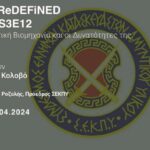


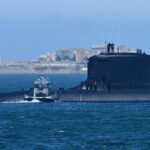


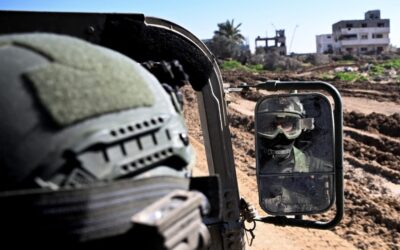


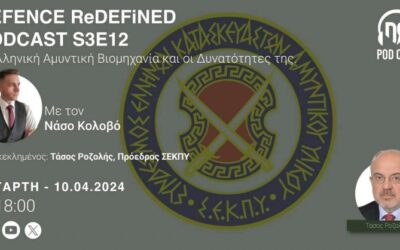
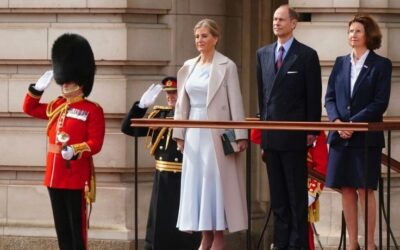
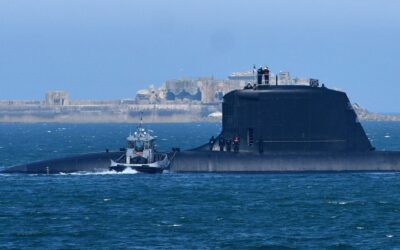
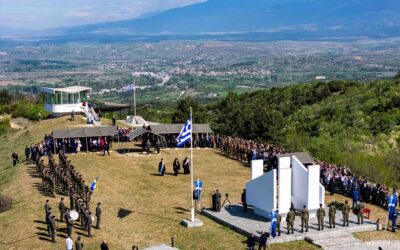
0 Comments